A Winter’s Tale: Commercial Freezer Buyer’s Guide
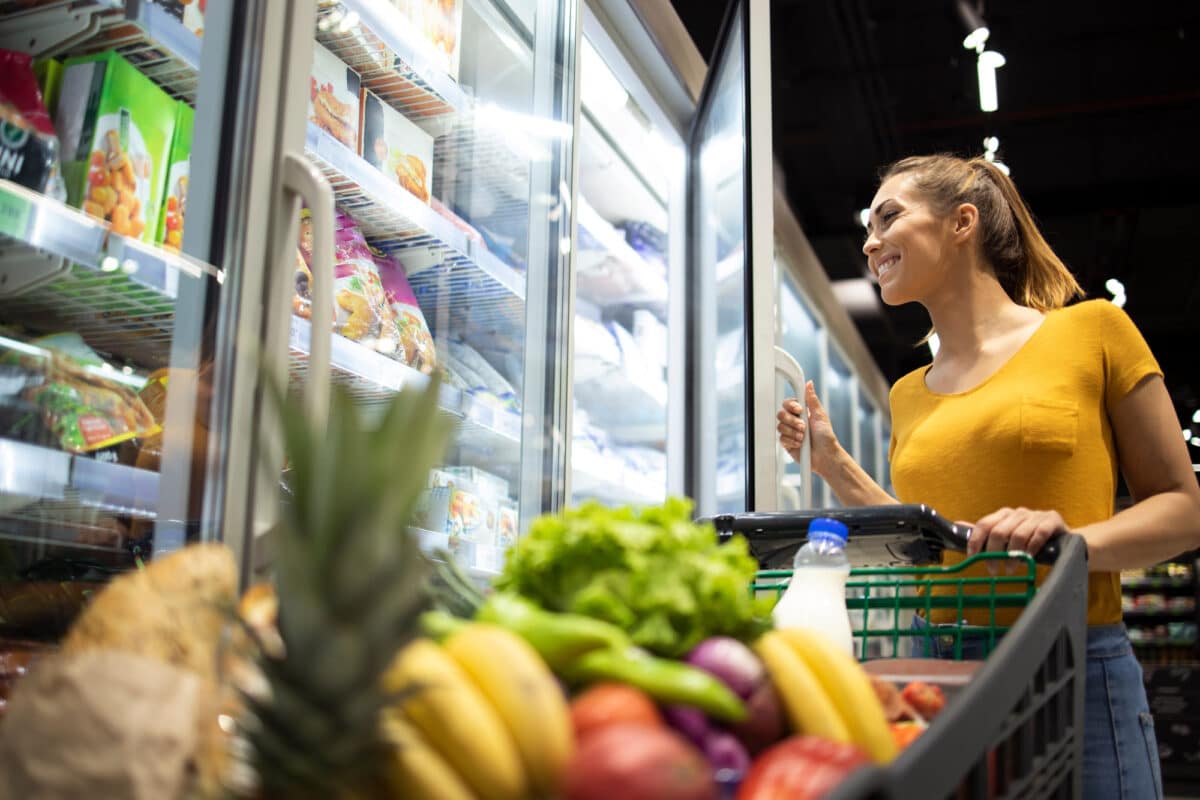
When it comes to furnishing your commercial kitchen, you want the best of the best, but with so many options out there, it can be overwhelming to know what’s right for your kitchen. The type of freezer plays a major role in smooth kitchen operations and food quality.
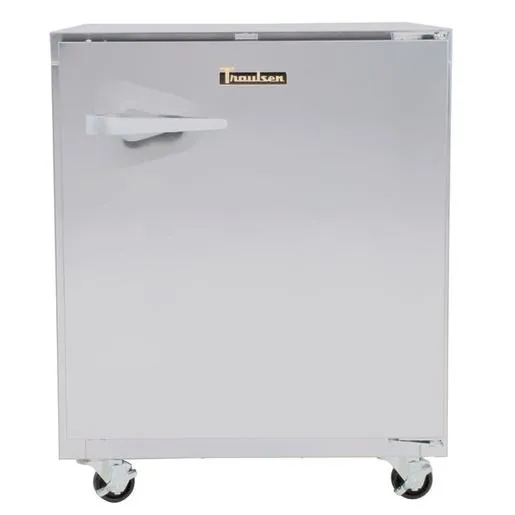
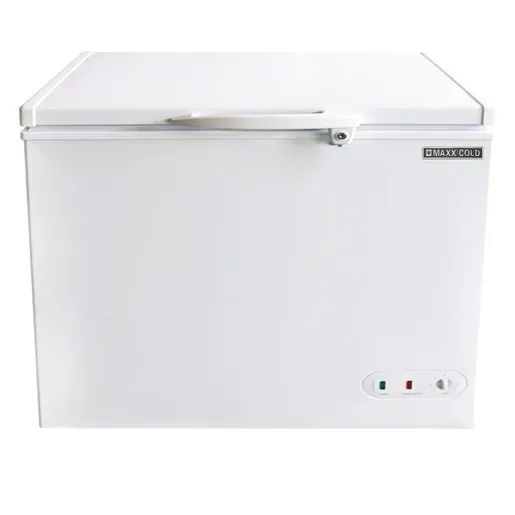
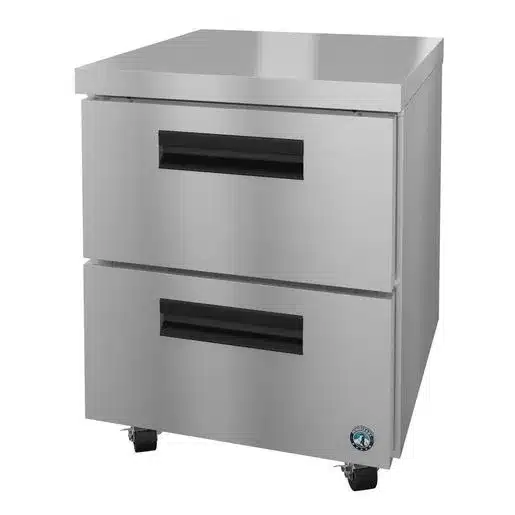
- Walk-In Freezers: Designed for larger kitchen spaces and often customized to your specific dimensions, these are room-size commercial freezers. Your staff can walk in and out for quick and easy access to goods.
- Reach-In Freezers: The most common choice for restaurants and commercial kitchens – these are upright units that look somewhat like a home refrigerator. You can find single, double, and triple door models, so you have the freedom to choose the option that works best space and desired workflow. Quickly reach in and grab what you need.
- Under-Counter Freezers: As the name suggests, these fit snuggly beneath your countertops. Perfect for smaller kitchens, these units make it easy for you to access food items in tight areas where space is limited.
- Chest Freezers: If you have the extra floor space to spare, a commercial chest freezer, aka deep freezer, can store large amounts of product for an extended period of time without compromising quality.
- Glass Door Merchandisers/Commercial Display Freezer: A highlight of convenience stores and ice cream shops, these units put your food items on display while keeping them at safe temperatures. If you want your customers to be able to see and choose their own items, this is the way to go.
- Roll-In and Pass-Through Freezers: Built for catering companies and bakeries, these high-storage capacity freezers make it easy for you to load and unload racks and trolleys. Pass-through freezers feature doors on both sides for more efficient kitchen workflows.
Will It Suff-ice? Determining the Ideal Freezer Size and Capacity
To make sure you get the freezer that best suits your needs, you must consider:
- How much space you have in your kitchen.
- The number of meals you expect to serve daily.
- The kind of freezer you want.
You may want a walk-in, but if you don’t have the available floor space, you’ll have to settle for another option. The good news is, every style of commercial freezer is available in various sizes, so you can measure and know where to start.
Optimize Your Space for Efficient Workflow
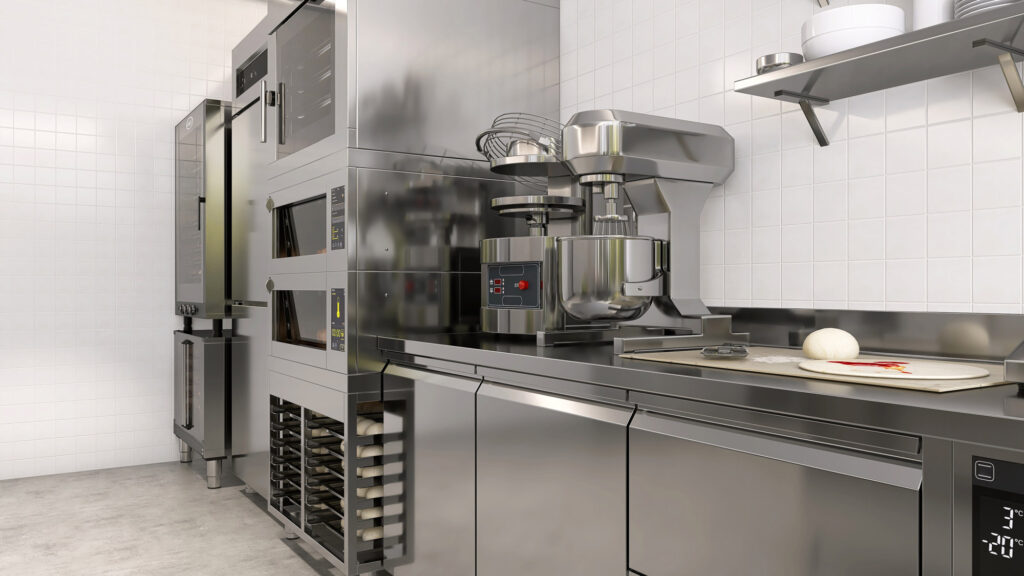
Measure how much space is available in your kitchen. Think about the freezer’s footprint, but make sure there’s enough room around it for the doors to fully open, and for your team to move around easily. If the space is too tight, you run the risk of staff injury during a busy shift, and that’s not something anyone wants to deal with. Also think about any other equipment that would need to be housed near the freezer, to keep the space from becoming congested during a busy service.
How Much Storage Space Do You Need?
To make sure you don’t run out of space, plan based on how many meals you serve in your restaurant every day. Generally, you should plan for about 1.5 cubic feet of freezer space per meal served daily. That means if your restaurant serves 200 meals daily, you need approximately 300 cubic feet of freezer space.
Avoid Overstuffing the Freezer
As tempting as it may be to squeeze every inch of available space, cramming too much into your freezer won’t do anyone any favors. There must be adequate space for airflow because without it, you could overwork the unit and ruin the food products’ quality and texture. Airflow is necessary for optimal freezing conditions, which helps keep your unit in good working order. If you’re having trouble keeping things accessible and organized, shelves and baskets can help you maximize space.
Naughty or Ice? Evaluating Reliability and Durability of Your Commercial Freezer
To make the most of your investment, you want to buy a reliable and durable commercial freezer. Instead of going with the cheapest sticker price and hoping for the best, pay special attention to the components that determine quality.
- Compressor: The heart of any cooling system, this is what pumps the refrigerant through the system to keep it cold and maintain consistent temperatures.
- Condenser and Evaporator: These two elements work together to maintain temperatures in your freezer or refrigerator. The evaporator cools the interior of the freezer, while the evaporator removes heat.
- Insulation: Quality insulation reduces energy consumption (saving you money on utility bills) and keeps food items at safe temperatures.
Top Performing Brands Icing Out the Competition
- True: True Manufacturing is one of the most well-known commercial refrigeration brands, offering a range of freezers with advanced features and quality construction. It’s their reliability and innovation that’s helped them earn a name synonymous with quality.
- Hoshizaki: Another top industry name, Hoshizaki freezers are known for quality and longevity.
Oh Say Can You Freeze: Advanced Temperature Control Features
Precise temperature control is paramount for good shelf life. Maintaining a consistent temperature preserves texture, flavor, and nutritional value while preventing bacterial growth. If your freezer creates temperature fluctuations, you may end up with freezer burn or spoilage, which affects your bottom line through food waste and damage to your restaurant’s reputation.
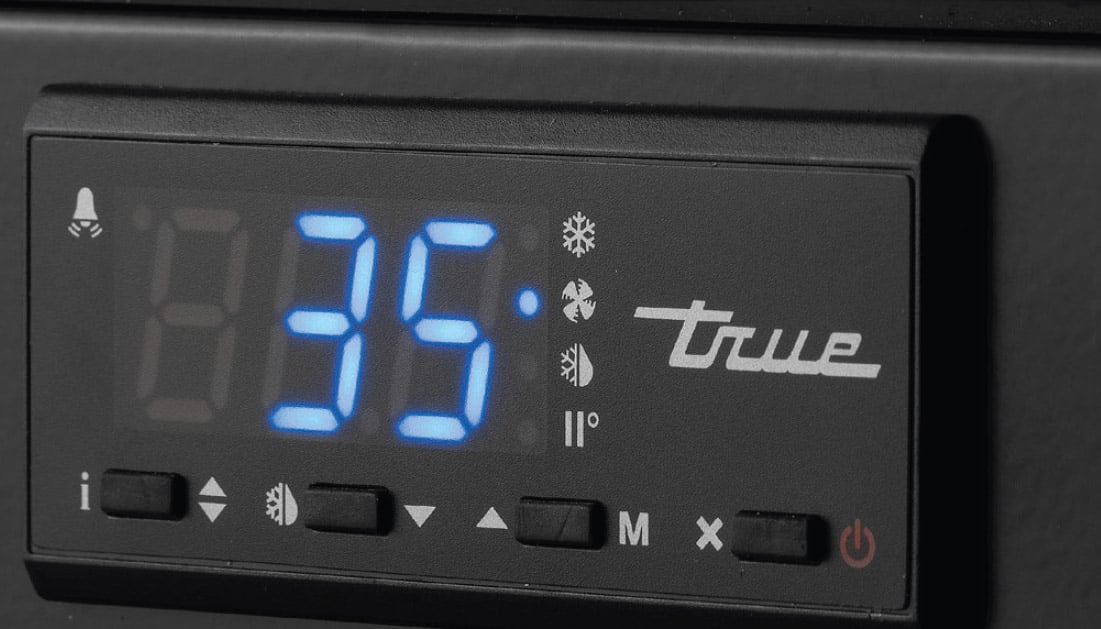
Today’s freezers are equipped with advanced temperature control features, including:
- Digital Thermostats: Ensure consistent internal conditions so that food stays at the ideal temperature.
- Automatic Defrost Systems: Keep things running smoothly without manual defrosting (downtime)
- Temperature Alarms: Find out if the freezer is too warm so you can take action before you compromise food quality.
Improved temperature control keeps your food safe while cutting down on energy consumption and operational costs. Keeping a consistent temperature means less strain on the compressor and other critical components for a longer lifespan and reduced maintenance.
Footloose and Fancy Freeze: Navigating Freezer Design and Layout
Your commercial freezer design and layout must complement your kitchen’s workflow, so the kitchen’s existing layout may be a major factor in the best option for your kitchen. You want one that will seamlessly integrate into the existing workflow, without obstructing pathways or causing disruption. Place it strategically to enhance efficiency and accessibility.
- Freezer Door Placement and Accessibility: Place pass-through freezers in high-traffic areas for easier access from multiple points. Consider solid vs. swinging doors based on your available space and operational needs.
- Customization Options: Because commercial use can have such vast storage requirements, many freezers have options that allow you to create a more convenient environment, including tailored interior configurations, adjustable shelving, and specialized compartments.
Ice and Easy: The Essentials of Freezer Maintenance and Cleaning
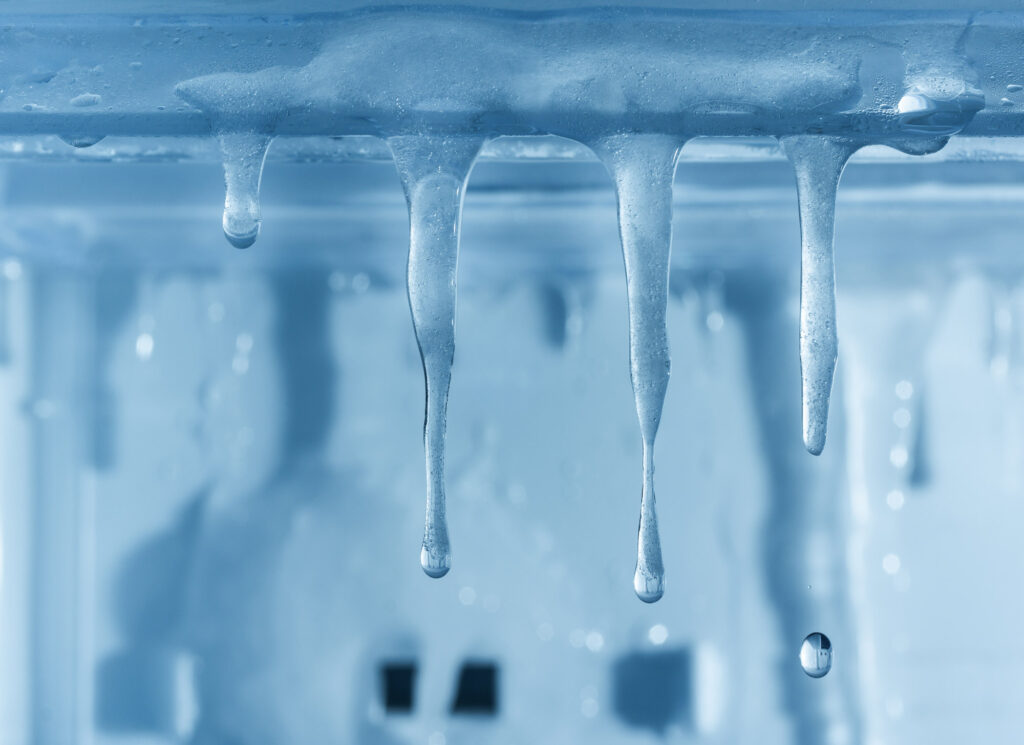
Regular maintenance and cleaning is especially important to ensuring you get the most out of your freezer.
- Preventive Maintenance Schedule: Routinely inspect and service your freezer as recommended by the manufacturer. Keeping an eye on the seals, coils, and thermostats can prevent minor issues from escalating to major, costly repairs or replacement.
- Keep it Clean and Hygienic: Clean all surfaces, inside and out, with the appropriate cleaning solutions. Focus attention on door gaskets and coils to prevent dirt and debris buildup, which could negatively affect performance.
Solutions for Common Commercial Freezer Maintenance Issues
The most common issues with commercial freezers are:
- Frost build-up: Start by checking the gaskets. If they’re damaged, air will make its way into the freezer. The ambient temperature doesn’t matter; it’s the humidity. Once it hits the cold air inside the freezer, the humidity condenses and creates more frost. If the gaskets are okay, look into the defrost timer or thermostat.
- Temperature fluctuations: This usually indicates a thermostat issue, but if there are drastic or long periods of fluctuation, you run the risk of compromising food safety.
- Unusual noises: Likely a result of compressor issues or a broken fan. Inspect the coils and clear any debris. Make sure there’s clearance around the coils to allow for adequate airflow.
If you’re unable to diagnose and repair the problem yourself, contact a refrigeration system expert as soon as possible.
The Cold Standard: Compliance with Health and Safety Standards
For food service businesses, meeting health and safety standards is a must.
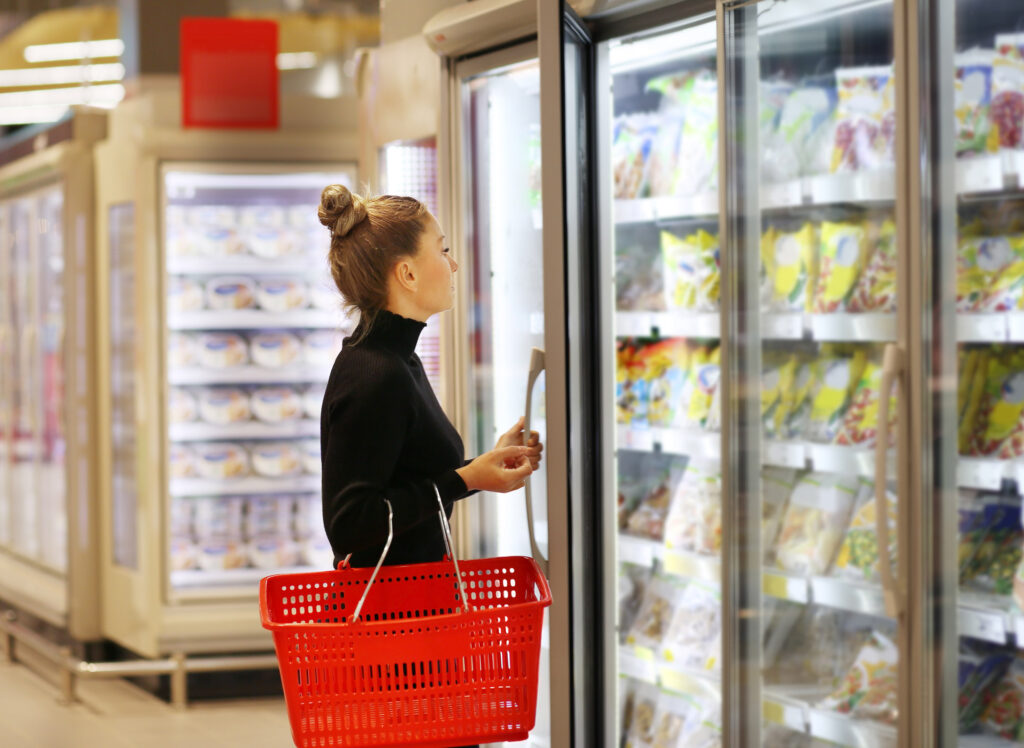
Make sure you’re aware of all local, state, and federal food industry regulations. Maintaining compliance keeps your food safe and avoids legal troubles. Regularly review updates to ensure you’re always in compliance.
- Consider the Impact on Customers and Business Reputation: Following all health and safety rules protects your customers and, thus, your brand’s reputation. If you’re found non-compliant, you may be fined or forced to close. Word travels fast, and customer trust is key.
- Freezer Features to Keep You Compliant: Make the most of freezer features such as automatic defrost systems, temperature alarms, and data logging to make it easier to demonstrate and maintain compliance.
Raise the Brr: The Impact on Food Preservation and Quality
A quality freezer directly influences food quality and customer satisfaction.
When food is consistently and reliably stored in freezing temperatures, you preserve nutritional value, texture, and taste to ensure your dishes remain high quality and meet expectations.
- Preventing Food Spoilage and Waste: With optimal storage conditions, you’ll cut down on waste and spoilage for more savings and better inventory management.
- Customer Satisfaction and Food Quality: A reliable freezer translates to an improved ability to deliver exceptional meals, leading to happier customers, positive reviews, and repeat business.
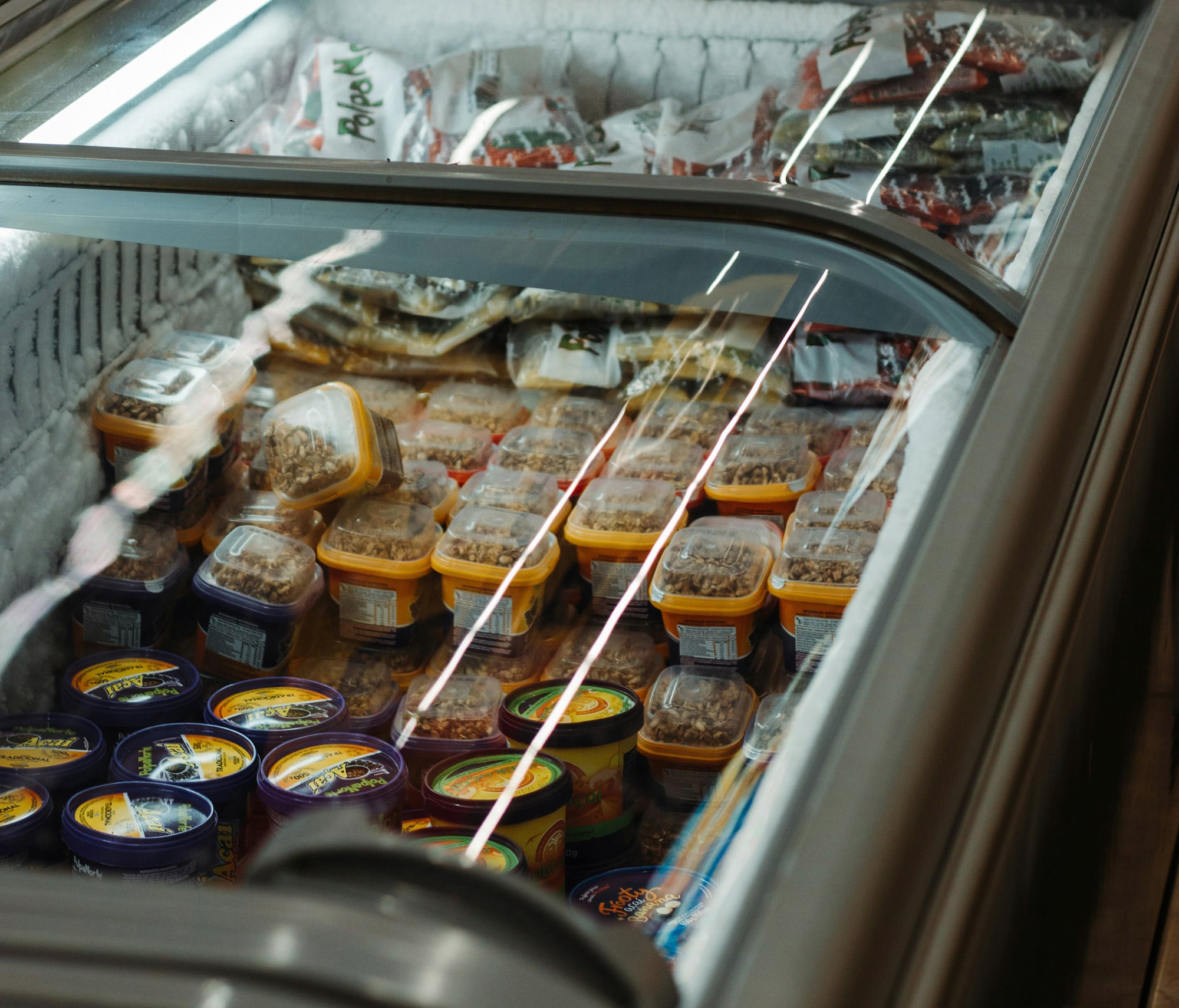
No Need to Comprom-ice: Choose the Right Freezer for Your Business
It may be tempting to spend less upfront on cheaper refrigeration units. But, once you consider the cost of ownership, it’s easy to see that spending more on quality and energy efficiency saves you more money in the long run.
A poor-quality unit means you’ll see increased operational costs in the form of higher energy costs and more maintenance and repair. If your freezer goes down for an extended period of time, you’ve destroyed your profit margins in a matter of hours because of food loss.
Choosing the right commercial freezer means carefully considering everything from size and capacity to durability and compliance. Researching your options and choosing the one that best fits your needs means you’ll operate efficiently, maintain excellent food quality, and enhance customer satisfaction.
Consider your specific needs, budget, kitchen space and layout, and more to help you make the right choice. Reach out to Eleven36’s customer service team so we can help you select the perfect commercial freezer for your business.
